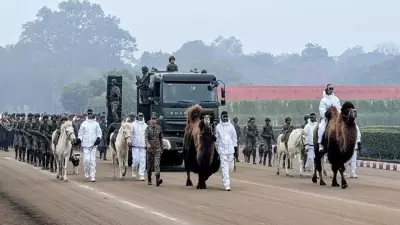
The Indian government has decided not to introduce a controversial bill in the upcoming Winter Session of Parliament that sought to alter the administrative status of Chandigarh, following strong political opposition from Punjab. The Home Ministry announced this decision on Sunday, November 23, 2025, after a parliamentary bulletin indicated the Centre would introduce The Constitution (131st Amendment) Bill 2025.
What Was The Proposed Change?
The proposed legislation aimed to bring Chandigarh under Article 240 of the Indian Constitution, which would have significantly changed how the Union Territory is administered. Currently, Chandigarh serves as the shared capital of both Punjab and Haryana, with the Governor of Punjab holding additional charge as the UT's Administrator.
Under Article 240, the President of India gains the power to make regulations for peace, progress, and good government in specified Union Territories. This change would have paved the way for Chandigarh to get an independent administrator, similar to the Lieutenant Governor system in other UTs like Puducherry and Delhi.
The article states that any regulation made by the President under this provision can repeal or amend any Parliamentary law applicable to the territory and carries the same force as an Act of Parliament. This would have effectively ended the current arrangement where Chandigarh remains under the Punjab Governor's administrative control.
Why Punjab Strenuously Opposed The Move
The proposed amendment triggered immediate backlash from Punjab's political parties, with both the Aam Aadmi Party and Congress accusing the Centre of attempting to weaken Punjab's historical claim over Chandigarh. The city holds deep symbolic and historical significance for Punjab, having been built as a replacement for Lahore, which became part of Pakistan after Partition.
Chandigarh's story began when then Prime Minister Jawaharlal Nehru envisioned a modern capital city for Punjab. In March 1948, the Centre and state government selected a location near the Himalayan foothills, acquiring 22 villages in Kharar for construction. The city's master plan was developed by renowned modernist architect Le Corbusier.
On September 21, 1953, Chandigarh officially became Punjab's capital, with President Rajendra Prasad inaugurating it on October 7 the same year. The city earned the nickname The City of Beauty for its planned architecture and design.
The current dispute traces back to The Punjab Reorganisation Act of 1966, when Haryana was carved out as a separate state. Chandigarh, located on the border, became the common capital for both states with properties divided in a 60:40 ratio. It also gained Union Territory status, bringing it under direct central control.
Then Prime Minister Indira Gandhi had announced that Haryana would get its own capital, and there was even a proposal to divide Chandigarh into two parts. On January 29, 1970, the Centre declared that the capital project area should entirely go to Punjab, following threats of self-immolation by Fateh Singh, leader of the Punjabi Suba movement.
Haryana was given temporary accommodation in Punjab's civil secretariat and Vidhan Sabha for five years until it could build its own capital. The Centre offered Haryana a grant of Rs 10 crore plus an equivalent loan for building a new capital. However, nearly six decades later, Chandigarh remains the joint capital, much to Punjab's displeasure.
Centre's Clarification and Way Forward
Facing political pressure, the Home Ministry issued a clarification on social media platform X, stating that no final decision has been taken on the proposal. The Ministry emphasized that the idea was merely to simplify the central government's law-making process for Chandigarh and wouldn't alter the city's governance or traditional arrangements with Punjab and Haryana.
The Ministry assured that any decision would only follow adequate consultations with all stakeholders, keeping Chandigarh's interests in mind. They explicitly stated there was no need for concern and confirmed no such bill would be introduced in the upcoming Winter Session.
Punjab Chief Minister Bhagwant Mann had earlier asserted his state's position, stating, We will not allow the conspiracy to succeed. Chandigarh, built by uprooting the villages of Punjab, belongs solely to Punjab. We will not let our right slip away.
The Centre's decision to pause the controversial bill has temporarily defused political tensions, but the underlying issue of Chandigarh's status remains unresolved, continuing a dispute that has persisted since the 1966 reorganization of Punjab.





